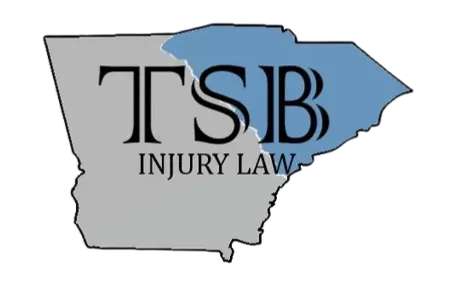Whiplash is a painful and often misunderstood injury that is commonly, although not exclusively, associated with car accidents.
The severity of a whiplash injury could directly impact the value of an individual’s legal claim. By understanding how whiplash is graded, you and your car accident attorney can make the strongest argument for the most amount of compensation. The Law Office of Taylor S. Braithwaite explains what you need to know.
What Are Whiplash and Whiplash Associated Disorders?
“Whiplash” and “whiplash-associated disorder” are nearly identical in their meanings.
Whiplash is an injury resulting from the sudden jerking motion that the head experiences during a major traumatic event like a car crash. This forceful movement results in damage to the soft tissue, the ligaments, and/or the bones in the neck and upper back regions. The term may also be used to describe the actual mechanics that lead to these injuries, which are reminiscent of the cracking of a whip.
Meanwhile, whiplash-associated disorder can be understood as the pain, stiffness, discomfort, and other symptoms that result from whiplash. Because these two terms describe essentially the same thing, they can be thought of as interchangeable.
Common Signs and Symptoms of Whiplash and Whiplash Associated Disorder
Some whiplash victims immediately encounter symptoms, while others may not notice signs until hours or days after the accident.
These are some of the most frequently reported symptoms of whiplash:
- Pain or discomfort in the neck, back, or shoulder
- Radiating pain in the neck, back, or shoulder regions
- Stiffness and trouble moving the head or neck
- Numbness or tingling
- Ringing in the ears
- Facial pain and discomfort
- Headaches
- Memory problems
- Muscle spasms
- Fatigue
- Vertigo
- Nausea
- Anxiety and mood changes
What Are the Different Grades of Whiplash and Their Symptoms?
Medical experts in the late 20th century developed a classification system to determine how severe an individual’s whiplash is. The grades of 0-4 are based on the victim’s symptoms, subjective reports, and physical examinations.
Whiplash grades and their signs are as follows:
- Grade 0 Whiplash: The victim exhibits no symptoms or pain.
- Grade 1 Whiplash: There is pain, stiffness, and tenderness but doctors cannot confirm the presence of a whiplash injury.
- Grade 2 Whiplash: The same symptoms as Grade 1 are present, but more pronounced, and a physical examination reveals tenderness to the touch and limited range of motion. There may also be bruising, swelling, and muscle spasms.
- Grade 3 Whiplash: In addition to pain and swelling, there are neurological symptoms including headaches, vision problems, and muscle weakness.
- Grade 4 Whiplash: The victim’s complaints about the neck include spinal cord injury or bone fractures and dislocations. These symptoms may exacerbate those present with lower grades.
How to Treat Whiplash
Whiplash grades were originally designed to help doctors determine an appropriate treatment regimen for the whiplash victim. They can still play a role in the doctor’s recommendations.
However, some contend that the grades of whiplash are not particularly accurate ways of determining the length of recovery a patient may need.
For that reason, the victim must follow the doctor’s specific treatment advice so he or she can recover as quickly as possible. Listening to your doctor is also important to ensure you don’t inadvertently jeopardize your personal injury claim.
Potential treatments include:
- Pain medication
- Hot and cold treatments to reduce swelling and inflammation
- Physical therapy including massages and targeted exercises
- Nerve therapies such as transcutaneous electrical nerve stimulation (TENS)
- Spinal surgery
If you fail to follow your doctor’s advice, the at-fault party’s insurance company may try to blame you for the pain, suffering, and other whiplash injuries you suffered. This could result in a lower settlement offer or damages award.
Still, an experienced personal injury lawyer can challenge any attempts to shift liability for the accident or injuries to you.
Do the Grades of Whiplash Affect Settlement Amounts for Car Accident Victims?
The whiplash grading system has become a useful tool for insurance adjusters and personal injury lawyers to gauge the severity of the injury, which affects the amount of compensation the victim may receive. While Grade 1 or Grade 2 Whiplash may not result in significant compensation, Grade 3 Whiplash could result in a higher settlement offer from the at-fault driver’s insurance company.
However, since whiplash grading is not an especially accurate measure of anticipated recovery times, some have criticized their use in insurance settlements.
An insurer may assign you a grade that is lower than and does not accurately reflect the pain and symptoms you are experiencing and its effects on your ability to work and enjoy life. The insurer may do so as a way of signaling to you that it does not take your injury seriously and that it is not willing to offer you more compensation.
How a Personal Injury Lawyer Can Help You
Your personal injury lawyer will argue for the most amount of compensation available, regardless of the grades of whiplash the insurer may use.
When you retain TSB Injury Law, we will push back against any attempt by the insurers to downplay the severity of your injuries or offer an unreasonably low settlement amount. The potential compensation that you may receive could cover:
- Past medical bills
- Past lost wages
- Reasonably projected costs of future medical care
- Lost earning capacity, if the recovery time from whiplash affects your ability to work
- Pain and suffering
- Loss of enjoyment of life
Medical expert witnesses can explain the whiplash symptoms you are experiencing and how they factor into such future damages as medical bills and lost earning capacity. As an experienced trial lawyer, Taylor Braithwaite can take your case before a judge and jury if settlement negotiations are unproductive.
Call TSB Injury Law for Your Whiplash Case
If you’ve suffered from whiplash from a car accident or other personal injury, find out why so many victims trust TSB Injury Law. Call us today at (803) 220-0000 or use our online form to schedule your consultation.



